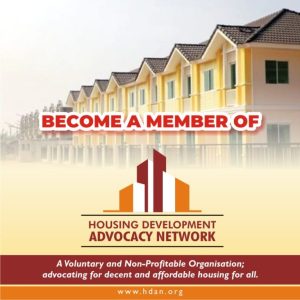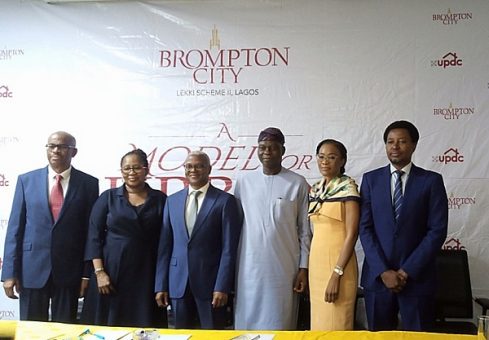Housing must be recognized as a critical driver of economic growth, not just a social need, says Odunayo Ojo, Managing Director and Chief Executive Officer of UPDC Plc. Speaking at a recent media briefing in Lagos, Ojo made a powerful case for prioritizing affordable housing in Nigeria’s national development agenda.
“In any developed economy, housing forms a cornerstone of economic prosperity — and Nigeria should be no exception,” Ojo emphasized.
As UPDC unveils a new strategy focused on resilience, middle-income housing, and diversified revenue streams, the company’s leadership shared highlights of its ongoing transformation, including a return to profitability and the resumption of dividend payments after nearly a decade.
Bridging Nigeria’s Housing Gap
Nigeria’s housing deficit, estimated at between 22 to 28 million units, remains a staggering challenge. Ojo stressed that UPDC is committed to addressing the shortfall “one project at a time,” particularly by shifting focus toward the growing middle-income market where demand is most acute.
Historically known for premium developments in high-end locations like Ikoyi, Victoria Island, and Maitama, UPDC is now channeling efforts into projects designed for broader accessibility.

“We realized that the critical mass of demand lies within the middle-income segment,” Ojo explained.
Projects like The Hampshire in Sangotedo and Brompton City along Ogombo Road are clear examples of this pivot — combining affordability, sustainability, and modern amenities.
Sustainable, Modern Developments
UPDC’s Head of Development, Olatunde Jagun, detailed how the company’s projects are evolving to meet today’s housing expectations.
The Hampshire has been fully delivered, featuring 62 fully serviced plots across various density categories.
Brompton City, a 300,000 square meter estate, has sold out its first phase, with phases two and three in the design and planning stage. Groundbreaking is expected in the second half of 2025, with delivery targeted for the end of 2026.
Jagun noted that UPDC is integrating solar-powered infrastructure alongside traditional grid connections, adding recreational and commercial spaces to support thriving, sustainable communities.
“In line with global sustainability goals, we have incorporated solar solutions into our infrastructure plans,” Jagun said.
Building Resilience Amid Economic Challenges
Despite facing macroeconomic headwinds — including inflation, currency volatility, and surging interest rates — UPDC has navigated multiple crises with strategic risk management.
Ojo credited UPDC’s survival through the global financial crisis, the COVID-19 pandemic, and recent monetary reforms to its adaptive strategies such as local sourcing, early procurement, and emphasis on equity financing.
The company is also responding to shifting demographic trends, designing smaller, smarter homes tailored to young professionals’ preferences.
“The younger generation values functionality over size — they want smart homes with amenities like gyms and cafés, not sprawling spaces,” Ojo explained.
Legal Reforms Needed to Unlock Innovation
Reflecting on the company’s early experiments with rent-to-own schemes, Ojo pointed to Nigeria’s weak foreclosure laws as a major barrier.
“Rent-to-own is a great idea, but without enforceable foreclosure processes, it’s very difficult to make it work,” he said, noting that legal battles over vacant possession can stretch for a decade or more.
He urged policymakers to strengthen enforcement mechanisms to unlock the full potential of innovative homeownership models.
A New Chapter for UPDC
As UPDC expands across the real estate value chain, its renewed focus on affordable, sustainable housing signals a broader ambition: to play a central role in Nigeria’s economic future.
“Housing is not just about shelter,” Ojo concluded. “It’s about economic opportunity, stability, and growth. It’s time Nigeria treated it that way.”



